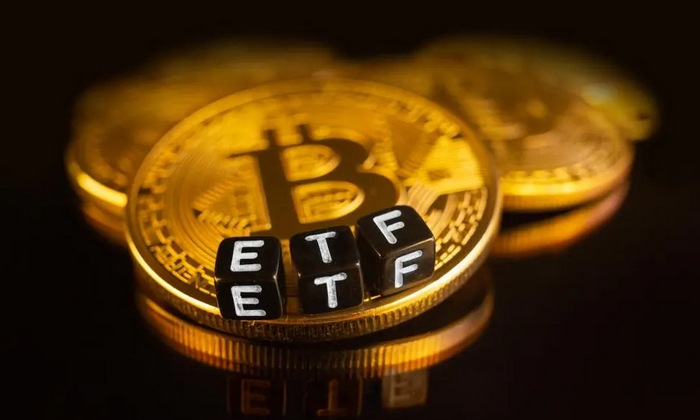-
 Bitcoin
Bitcoin $85,053.4987
0.47% -
 Ethereum
Ethereum $1,604.0688
1.50% -
 Tether USDt
Tether USDt $0.9997
-0.01% -
 XRP
XRP $2.0888
1.22% -
 BNB
BNB $593.1504
0.71% -
 Solana
Solana $138.4195
3.26% -
 USDC
USDC $0.9999
-0.01% -
 Dogecoin
Dogecoin $0.1597
3.11% -
 TRON
TRON $0.2415
-1.60% -
 Cardano
Cardano $0.6329
3.08% -
 UNUS SED LEO
UNUS SED LEO $9.2888
0.62% -
 Chainlink
Chainlink $12.7878
1.44% -
 Avalanche
Avalanche $19.2917
1.31% -
 Stellar
Stellar $0.2447
1.18% -
 Toncoin
Toncoin $3.0011
0.71% -
 Shiba Inu
Shiba Inu $0.0...01226
3.89% -
 Hedera
Hedera $0.1676
2.05% -
 Sui
Sui $2.1459
1.63% -
 Bitcoin Cash
Bitcoin Cash $337.7604
2.53% -
 Hyperliquid
Hyperliquid $17.6730
4.32% -
 Polkadot
Polkadot $3.7299
1.72% -
 Litecoin
Litecoin $76.5325
1.77% -
 Dai
Dai $0.9999
0.00% -
 Bitget Token
Bitget Token $4.4634
2.38% -
 Ethena USDe
Ethena USDe $0.9991
0.00% -
 Pi
Pi $0.6486
5.66% -
 Monero
Monero $212.3459
-1.60% -
 Uniswap
Uniswap $5.2591
1.62% -
 Pepe
Pepe $0.0...07316
3.79% -
 OKB
OKB $50.8354
2.04%
Will Bitcoin ETF handling fees affect the return and risk ratio of investment?
Bitcoin ETF management fees can reduce returns, amplify risks during volatility, and should be carefully considered alongside alternative investments with potentially lower fees.
Oct 17, 2024 at 02:47 pm

Are Bitcoin ETF Management Fees Impacting Returns and Risk Profile of Investments?
1. Understanding Bitcoin ETFs
A Bitcoin exchange-traded fund (ETF) is an investment fund that tracks the price of Bitcoin. Investors can purchase shares in the fund, giving them exposure to Bitcoin's price fluctuations without trading actual Bitcoin themselves.
2. Impact of Management Fees
Bitcoin ETFs typically charge management fees to cover operational expenses. These fees can range from 0.25% to 2% annually.
Return Impact:
- Higher management fees reduce the return received by investors.
- Over the long term, even small management differences can accumulate and significantly impact overall returns.
Risk Profile Impact:
- Since management fees are a fixed percentage, they can amplify the risk-return ratio during periods of market volatility.
- Higher fees reduce potential profits and increase potential losses during market downturns.
3. Fee Considerations
When investing in a Bitcoin ETF, consider the following fee-related factors:
- Expense Ratio: This represents the total annual operating expenses of the fund, including management and other fees.
- Trading Commissions: Brokerage fees for buying and selling ETF shares can further erode returns.
- Opportunity Cost: Fees divert funds that could be invested in Bitcoin or other assets, potentially reducing returns.
4. Alternate Investment Options
Investors seeking exposure to Bitcoin may also consider alternative options with variable fees or lower expense ratios:
- Bitcoin Spot Trading: Buying and selling actual Bitcoin on exchanges incurs trading fees but no management fees.
- Bitcoin Futures ETFs: These ETFs track the price of Bitcoin futures contracts, potentially offering lower fees than spot-based ETFs.
- Grayscale Bitcoin Trust (GBTC): A closed-end fund that invests in Bitcoin but charges a higher premium and management fee.
5. Conclusion
Bitcoin ETF management fees can impact the return and risk profile of investments. Investors should carefully consider the expense ratio, trading commissions, and opportunity costs associated with ETF fees. By understanding these factors and exploring alternative investment options, investors can make informed decisions that align with their risk tolerance and financial goals.
Disclaimer:info@kdj.com
The information provided is not trading advice. kdj.com does not assume any responsibility for any investments made based on the information provided in this article. Cryptocurrencies are highly volatile and it is highly recommended that you invest with caution after thorough research!
If you believe that the content used on this website infringes your copyright, please contact us immediately (info@kdj.com) and we will delete it promptly.
- Ethena Labs Unveils Converge, a New Layer-1 Blockchain Targeting Tokenized Real-World Assets
- 2025-04-19 12:20:14
- FBI Releases Five Warnings to Help Protect Investors in the Cryptocurrency Space
- 2025-04-19 12:20:14
- Today, the Official Trump ($TRUMP) meme coin tokens have been unlocked, sparking panic among investors.
- 2025-04-19 12:15:14
- Dogecoin (DOGE) Price Prediction: Will the Original Memecoin Reach $1 by Late Summer 2025?
- 2025-04-19 12:15:14
- Resilience is a Distinct Attribute of Solana
- 2025-04-19 12:10:13
- Astar Network Adjusts Its Token Issuance Model to Stabilize APY and Reduce Inflation
- 2025-04-19 12:10:13
Related knowledge

What is the difference in returns between long-term holding of a Bitcoin ETF and holding Bitcoin directly?
Apr 09,2025 at 04:15am
When considering the difference in returns between long-term holding of a Bitcoin ETF and holding Bitcoin directly, it's essential to understand the nuances and factors that affect each investment option. Both approaches have their unique advantages and potential drawbacks, which can significantly impact the overall returns over time. Understanding Bitc...

How is the "roll cost" of a futures Bitcoin ETF generated?
Apr 08,2025 at 01:22pm
The 'roll cost' of a futures Bitcoin ETF is a critical concept for investors to understand, as it directly impacts the performance of the ETF. In this article, we will delve into the mechanics of how the roll cost is generated, exploring the underlying processes and factors that contribute to this cost. Understanding Futures ContractsFutures contracts a...

How can the premium or discount of a Bitcoin ETF be narrowed through an arbitrage mechanism?
Apr 09,2025 at 12:07am
Arbitrage mechanisms play a crucial role in narrowing the premium or discount of a Bitcoin Exchange Traded Fund (ETF). Understanding how these mechanisms work can provide valuable insights into the dynamics of Bitcoin ETFs and their relationship with the underlying asset. This article will delve into the specifics of how arbitrage can be used to align t...

What factors affect the bid-ask spread of a Bitcoin ETF?
Apr 08,2025 at 08:50pm
The bid-ask spread of a Bitcoin Exchange Traded Fund (ETF) is a critical metric that investors and traders closely monitor. It represents the difference between the highest price a buyer is willing to pay (bid) and the lowest price a seller is willing to accept (ask). Several factors influence this spread, and understanding them can help investors make ...

How is the seed capital of a Bitcoin ETF used?
Apr 10,2025 at 02:15pm
The seed capital of a Bitcoin ETF plays a crucial role in the establishment and operation of the fund. This initial investment is used to create the fund's underlying assets, manage operational costs, and ensure the ETF can start trading on an exchange. Understanding how this seed capital is utilized provides insight into the mechanics of Bitcoin ETFs a...

What is the difference between "physically backed" and "synthetic" Bitcoin ETFs in terms of holding assets?
Apr 10,2025 at 04:56pm
Bitcoin Exchange Traded Funds (ETFs) have become a popular way for investors to gain exposure to the cryptocurrency market without directly owning the underlying asset. There are two primary types of Bitcoin ETFs: physically backed and synthetic. Understanding the differences between these two types, particularly in terms of how they hold assets, is cru...

What is the difference in returns between long-term holding of a Bitcoin ETF and holding Bitcoin directly?
Apr 09,2025 at 04:15am
When considering the difference in returns between long-term holding of a Bitcoin ETF and holding Bitcoin directly, it's essential to understand the nuances and factors that affect each investment option. Both approaches have their unique advantages and potential drawbacks, which can significantly impact the overall returns over time. Understanding Bitc...

How is the "roll cost" of a futures Bitcoin ETF generated?
Apr 08,2025 at 01:22pm
The 'roll cost' of a futures Bitcoin ETF is a critical concept for investors to understand, as it directly impacts the performance of the ETF. In this article, we will delve into the mechanics of how the roll cost is generated, exploring the underlying processes and factors that contribute to this cost. Understanding Futures ContractsFutures contracts a...

How can the premium or discount of a Bitcoin ETF be narrowed through an arbitrage mechanism?
Apr 09,2025 at 12:07am
Arbitrage mechanisms play a crucial role in narrowing the premium or discount of a Bitcoin Exchange Traded Fund (ETF). Understanding how these mechanisms work can provide valuable insights into the dynamics of Bitcoin ETFs and their relationship with the underlying asset. This article will delve into the specifics of how arbitrage can be used to align t...

What factors affect the bid-ask spread of a Bitcoin ETF?
Apr 08,2025 at 08:50pm
The bid-ask spread of a Bitcoin Exchange Traded Fund (ETF) is a critical metric that investors and traders closely monitor. It represents the difference between the highest price a buyer is willing to pay (bid) and the lowest price a seller is willing to accept (ask). Several factors influence this spread, and understanding them can help investors make ...

How is the seed capital of a Bitcoin ETF used?
Apr 10,2025 at 02:15pm
The seed capital of a Bitcoin ETF plays a crucial role in the establishment and operation of the fund. This initial investment is used to create the fund's underlying assets, manage operational costs, and ensure the ETF can start trading on an exchange. Understanding how this seed capital is utilized provides insight into the mechanics of Bitcoin ETFs a...

What is the difference between "physically backed" and "synthetic" Bitcoin ETFs in terms of holding assets?
Apr 10,2025 at 04:56pm
Bitcoin Exchange Traded Funds (ETFs) have become a popular way for investors to gain exposure to the cryptocurrency market without directly owning the underlying asset. There are two primary types of Bitcoin ETFs: physically backed and synthetic. Understanding the differences between these two types, particularly in terms of how they hold assets, is cru...
See all articles
























































































